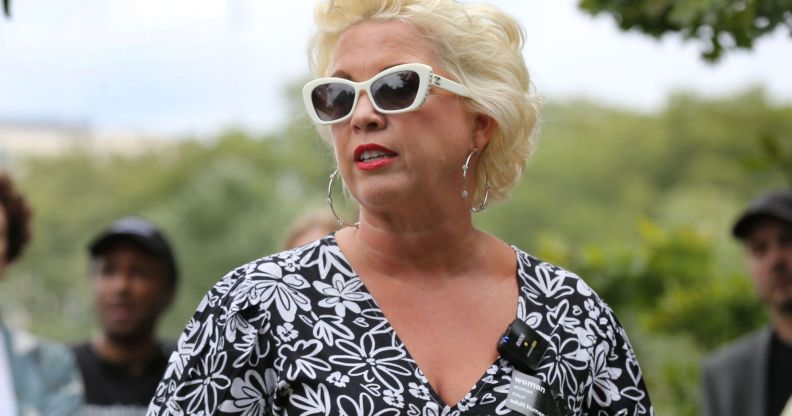New Zealand media cleared over complaints for saying Nazis ‘supported’ Posie Parker at Melbourne rally

Posie Parker aka Kellie-Jay Keen-Minshull stood for the Party of Women in Bristol Central. (Getty)
Posie Parker aka Kellie-Jay Keen-Minshull stood for the Party of Women in Bristol Central. (Getty)
Media regulators in New Zealand have dismissed all complaints over news outlets describing anti-trans activist Posie Parker as an anti-trans activist.
Supporters of the British pundit complained that the term was used to describe Parker, also known as Kellie-Jay Keen-Minshull, during her tour across Australia and New Zealand earlier this year.
But, following a review of the complaints, both the Media Council and the Broadcasting Standards Authority (BSA) ruled that the description was accurate.
The watchdogs ruled that it was not unfair to call the anti-trans activist “anti-transgender” or a “trans-exclusionary speaker” and similar descriptions that fall within the bodies’ rules.
The Media Council found in its own report that it was also accurate to describe the neo-Nazi groups who attended her Melbourne rally as supportive of the protest.
Similarly, the BSA ruled that it did not breach media standards to say neo-Nazis “supported” Parker at the event.

Nine complaints were submitted to the Media Council by anti-trans activists, who accused journalists of breaching principles relating to accuracy, fairness and balance, while seven were submitted to the BSA making similar claims.
All were dismissed and none of the 16 total complaints were upheld by either organisation.
One complainant accused New Zealand national news organisation, the NZ Herald, of whipping up violence and hatred towards Parker during her tour, in which she described trans people as “groomers” and allies as “stupid young women”.
The watchdogs found that, of the complaints made against the NZ Herald, the coverage focused on the opposition to Parker’s views, but balanced reporting with past instances of her anti-trans comments.
This justified the label “anti-trans”, both the BSA and The Media Council said.
The Media Council did, however, initially scold radio station RNZ for a story that made “no indication any anti-trans people were approached for comment” or that “threats might also have been made against anti-trans activists”.
The council’s report went on to say: “As a result, the story, as originally published, appeared to be one-sided and it drew 27 complaints.”
But because RNZ amended its piece “relatively quickly” to include the possibility of threatening behaviour against anti-trans activists, the complaint was not upheld.
“Clearly, the Media Council has some concerns about the handling of this story. That made it a close call as to whether or not the complaint should be upheld but on balance the council found it did not breach its principles,” the report concluded.
In a statement to PinkNews, Parker said: “I’m used to authorities siding with the authoritarians and so it’s no surprise that the ruling found in their favour.
“I’d rather the media refrained from lies and misrepresentations but I can’t say it occupies my every waking hour. I feel for the New Zealand women and families affected by this dishonest misogynist ideology.”

